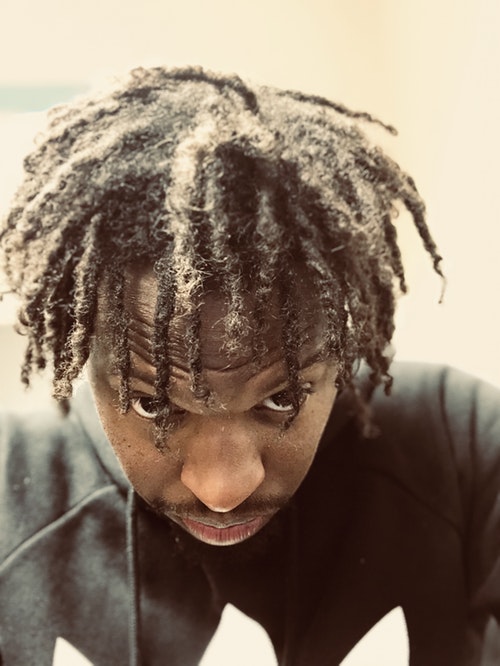Hello Meltingpot Readers,
It’s the last Friday of the month. That means it’s time for a Black hair story. Unfortunately, it’s not a happy one. This week’s Black hair story is another example of white people oppressing Black hair.
It was a week ago today, when a video surfaced of a high school wrestler named Andrew Johnson, getting his dreadlocks hacked off by a white woman in a high school gymnasium. It turned out, Johnson had been given an ultimatum by the wrestling referee; cut off your dredlocks or forfeit your match. The referee said Johnson’s hair violated the wrestling “dress code.” The 16-year-old varsity wrestler chose the impromptu haircut and ended up winning his match. Many people thought Johnson deserved credit for “taking one for the team” and “being a good sport.”
Going to the Mat for Black Hair
I’m going to tell you what’s wrong with this story. And I’m going to break it down easy for the people in the back.

- If Johnson is a varsity wrestler, then he’s been wrestling for a while. This wasn’t his first wrestling match, so how come on this day, his locks were suddenly a problem? His parents said in a statement that their son’s hair had never previously been an issue. So, clearly, the referee had a problem with Johnson’s hair or with Johnson. Which brings me to my next point.
- I’m not a wrestler or a referee and yet I have enough common sense to question the validity of making someone cut off their hair in the middle of a high school match. It has been verified that there are no rules that state Johnson’s hair was in violation. What’s more, wrestlers can wrap their hair in a cloth or tie it up under their helmet. Why wasn’t this an option before that hack job? Did the entire auditorium go mute at that moment? A responsible adult or two or three should have spoken up in defense of Johnson.
- At this point in time – 2018 is almost over – how is it that people can still claim ignorance about the significance of Black hair? “Please Don’t Touch My Hair,” is on T-Shirts, book covers (kids book covers too) and in stand-up comedy routines everywhere. Even if the referee had a legitimate complaint about the length of Johnson’s hair – which we now know he didn’t – somebody should have placed their hands on those scissors before they touched a single strand of Johnson’s hair and said, “You know, hair has real cultural significance in the African American community. Maybe we should think about this a little more before we cut this child’s hair off. Black people don’t even like to have their hair touched, maybe we shouldn’t be so hasty with these scissors.”
- Andrew Johnson is not a hero. He’s not to be commended for “taking one for the team.” He is a victim of a racist act and the ignorance and lack of action of the adults who were in that room. He is a young man who was forced to make an unnecessary decision under intense pressure. I hope and pray he is uplifted by the support of his community and Black Twitter who has kept this story in the press. And I hope his dreds grow back strong and healthy.
The Future of Black Hair in America
Now, what’s the moral to this story? Where do we go from here? How do we prevent this type of event from every happening again? It’s simple. We need to educate people about Black hair. (Plus we need to eliminate racism and white supremacy, but let’s work on the education bit first.) Because we still live in an incredibly segregated society, many non-Black people have no real knowledge about Black hair traditions, culture and history. If they did, we’d have a lot less incidents like the one with Andrew Johnson.

Please don’t think of this as shameless self-promotion, but I’m going to say it. People should read my book, Hair Story: Untangling the Roots of Black Hair in America (St. Martin’s). My co-author and I wrote the book with the primary intention of educating people – both Black and white – about the culture of Black hair so that there wouldn’t be so many culture clashes around it. Plus, it offers an interesting lens with which to view American history. Had more people been educated about Black hair (and racial violence against the Black body), perhaps someone would have spoken up in defense of Andrew Johnson.
I’m curious, what you think about this incident, dear readers. Leave me your thoughts in the comments.
Peace!
(Note: That is not Andrew Johnson in the image above. Photo by Key Notez from Pexels)
P.S. Please don’t forget to support our Kickstarter campaign for the My American Meltingpot podcast. We’re almost out of time (January 2, 2019) but we still have a way to go to meet our $5,500 goal. Thanks!!!!

